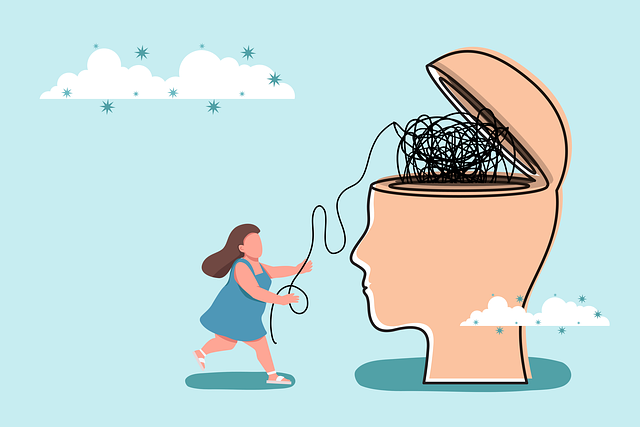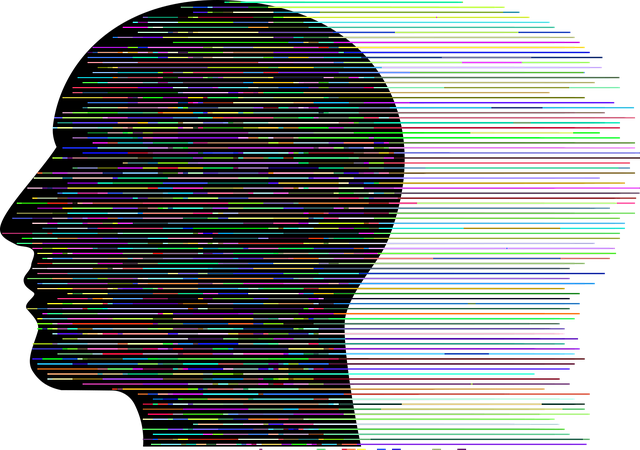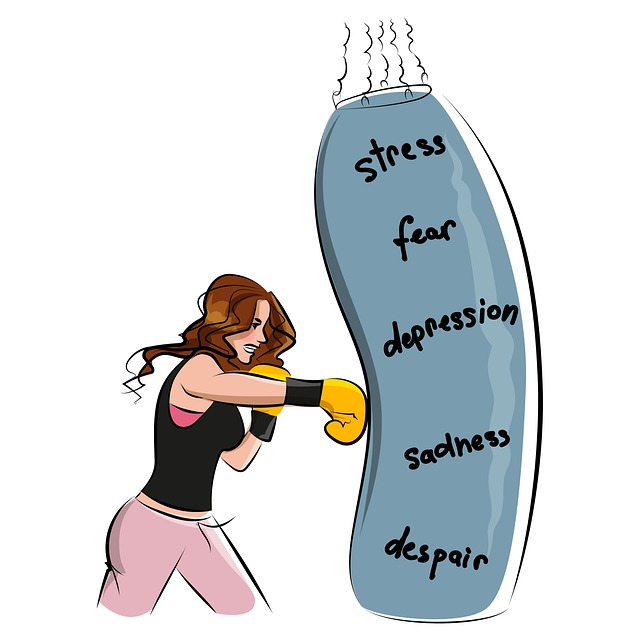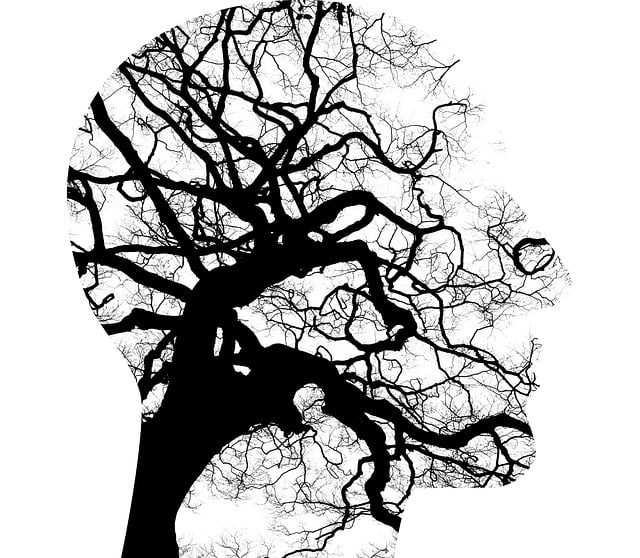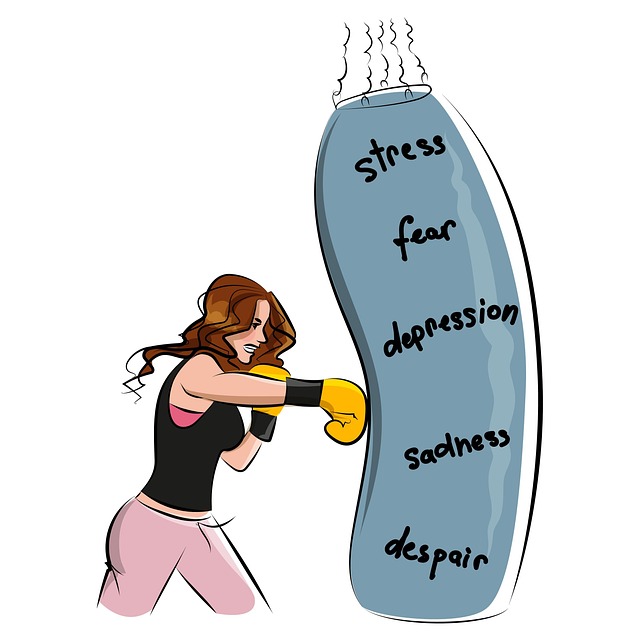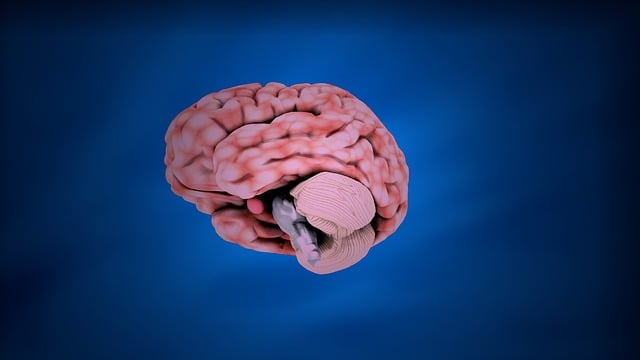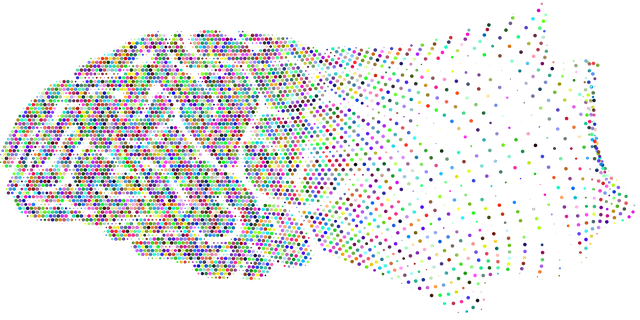Anxiety, a common but disruptive stress response, can evolve into disorders like Generalized Anxiety Disorder or Panic Disorder, affecting daily life. Compassion Cultivation Practices and culturally sensitive training help individuals manage anxiety through empathy and self-awareness. Aurora Dissociative Disorder Therapy (ADDT) offers innovative techniques to regain control over dissociative symptoms triggered by trauma. Cognitive Behavioral Techniques (CBT) provide a proven toolkit for challenging negative thoughts and enhancing emotional regulation. Mindfulness, meditation, physical activity, and social connections are essential lifestyle changes for anxiety management. ADDT combines with Crisis Intervention Guidance to offer comprehensive strategies for anxiety relief, improved quality of life, and potential depression prevention.
Anxiety is a prevalent condition affecting millions, but managing it effectively can significantly improve quality of life. This article explores diverse techniques to combat anxiety, from understanding its root causes to innovative therapies like Aurora Dissociative Disorder Therapy. We delve into cognitive behavioral approaches, the power of mindfulness and meditation, and essential lifestyle changes. By combining these strategies, individuals can reduce anxiety levels and cultivate a calmer, more balanced mindset.
- Understanding Anxiety and Its Impact
- Aurora Dissociative Disorder Therapy: A Unique Approach
- Cognitive Behavioral Techniques for Managing Anxiety
- Mindfulness and Meditation as Tools for Calm
- Lifestyle Changes for Reduced Anxiety Levels
Understanding Anxiety and Its Impact

Anxiety is a natural response to stress or perceived threats, but when it becomes overwhelming and persistent, it can significantly impact an individual’s daily life. This feeling of unease or fear can range from mild discomfort to debilitating panic attacks, affecting one’s ability to function normally. For some, anxiety disorders such as Generalized Anxiety Disorder (GAD) or Panic Disorder may develop, leading to intense and uncontrollable worry or recurrent, unexpected attacks of fear. Understanding the nature of these feelings is crucial in managing them effectively.
The impact of chronic anxiety can be far-reaching, affecting both mental and physical health. It may cause difficulties in concentration, decision-making, and memory retention, leading to underperformance at work or school. Physically, it can result in symptoms like increased heart rate, insomnia, fatigue, muscle tension, and even digestive issues. In severe cases, untreated anxiety can contribute to more complex conditions, such as Aurora Dissociative Disorder Therapy or Burnout Prevention Strategies for Healthcare Providers, which require specialized care. Compassion Cultivation Practices and Healthcare Provider Cultural Competency Training are essential tools that can help individuals navigate these challenges by fostering empathy, self-awareness, and culturally sensitive support systems.
Aurora Dissociative Disorder Therapy: A Unique Approach

Aurora Dissociative Disorder Therapy offers a unique and innovative approach to managing anxiety disorders. This therapeutic method focuses on helping individuals regain control over their dissociative symptoms, which can often be triggered by traumatic events or intense emotional stress. By utilizing techniques tailored to each client’s specific needs, therapists aim to enhance emotional regulation skills, allowing them to navigate through dissociation more effectively.
The therapy sessions are designed to create a safe and supportive environment, reducing the mental illness stigma that may surround dissociative disorders. Through careful risk assessment for mental health professionals, this approach ensures that clients receive specialized care while addressing underlying issues. This holistic method not only provides tools for managing symptoms but also fosters personal growth and resilience in individuals seeking to overcome anxiety-related challenges.
Cognitive Behavioral Techniques for Managing Anxiety

Cognitive Behavioral Techniques (CBT) offer a powerful toolkit for managing anxiety and its associated symptoms. This evidence-based approach helps individuals identify and challenge negative thought patterns and beliefs, replacing them with more realistic and balanced perspectives. By focusing on the connection between thoughts, feelings, and behaviors, CBT empowers people to take control of their emotional responses. For those dealing with conditions like Aurora Dissociative Disorder, CBT can be tailored to address specific challenges, fostering coping mechanisms that are both effective and personalized.
Empathy-building strategies within CBT create a safe space for individuals to explore and express their feelings, enhancing self-awareness and understanding. This process is especially beneficial in trauma support services, where building trust and connection can aid in the healing journey. Moreover, burnout prevention techniques derived from CBT teach individuals to set boundaries, manage stress effectively, and cultivate resilience, all of which are crucial aspects of long-term anxiety management.
Mindfulness and Meditation as Tools for Calm

Mindfulness and meditation have emerged as powerful tools in the arsenal of anxiety management techniques. These practices encourage individuals to focus on the present moment, rather than dwelling on past experiences or future worries. By cultivating a sense of calm and awareness, mindfulness can help to reduce symptoms of anxiety and promote overall mental well-being.
For those struggling with conditions like Aurora Dissociative Disorder, where managing traumatic memories is crucial, mindfulness-based therapies offer valuable crisis intervention guidance. Meditation practices can aid in stress reduction methods, helping individuals to better cope with overwhelming emotions and prevent burnout, which is particularly relevant for healthcare providers who often face high-stress situations as part of their work. Through regular practice, these techniques foster mental resilience, enabling individuals to navigate challenging situations with greater composure.
Lifestyle Changes for Reduced Anxiety Levels

Anxiety management often involves significant lifestyle changes that can help reduce anxiety levels. One effective approach is incorporating regular physical activity into your routine, as it stimulates the release of endorphins, which act as natural mood lifters and stress reducers. Additionally, adopting a balanced diet rich in nutrients supports overall mental well-being. Mental Illness Stigma Reduction Efforts have highlighted the importance of social connections, so fostering healthy relationships and engaging in community activities can provide valuable support networks.
Aurora Dissociative Disorder Therapy (ADDT) offers unique insights into managing anxiety by addressing underlying dissociative symptoms. Crisis Intervention Guidance emphasizes immediate strategies to cope with intense anxiety or panic attacks, teaching individuals techniques like deep breathing exercises and mindfulness practices. By combining these lifestyle adjustments with specialized therapy, individuals can take proactive steps towards managing their anxiety effectively and improving their overall quality of life, potentially preventing issues like Depression Prevention.
Anxiety management is a multifaceted journey, and exploring various techniques can empower individuals to take control. From understanding the impact of anxiety to adopting unique therapies like Aurora Dissociative Disorder Therapy, cognitive behavioral techniques, mindfulness practices, and lifestyle adjustments, each offers valuable tools for managing symptoms. By integrating these strategies into daily routines, folks can navigate and reduce anxiety levels, fostering a sense of calm and enhancing overall well-being.
